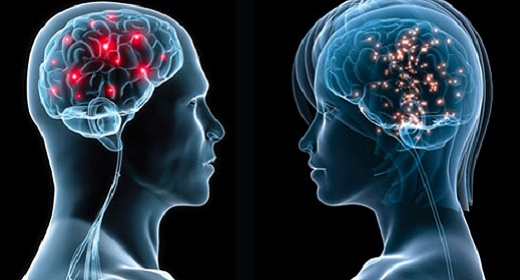by Gabby Bernstein: In this post I’m talking my friend Dr. Mark Hyman, a man I’m privileged to have on speed dial…
Dr. Hyman just published a new book, called Food Fix: How to Save Our Health, Our Economy, Our Communities, and Our Planet — One Bite at a Time.
He describes Food Fix as “a hard-hitting manifesto that will change the way you think about — and eat — food forever, and will provide solutions for citizens, businesses, and policymakers to create a healthier world, society, and planet.”
Dr. Mark Hyman is a family physician and a leader in the field of functional medicine. He’s the founder and director of The UltraWellness Center, the Head of Strategy and Innovation of the Cleveland Clinic Center for Functional Medicine and Board President for Clinical Affairs for The Institute for Functional Medicine. Dr. Hyman also hosts the podcast The Doctor’s Farmacy.
Without further ado, here’s our conversation inspired by Dr. Hyman’s new book, Food Fix.
Inflammation
Gabby:
I want to begin talking about inflammation. How are we so inflamed, why we’re so inflamed, and what we can do about it?
Dr. Hyman:
Functional medicine is essentially a model of thinking about the body as a system, where there are systems within the system and they’re all connected. One of the most important systems [is the one] that controls inflammation and immunity. It’s the thing that is driving most disease.
I often joke that I’m an inflammologist. People come in with a host of different problems, but they often have common, similar roots, and functional medicine is essentially about going to the root cause and treating the system, not the symptoms.
So you could have Alzheimer’s, cancer, heart disease, autism, diabetes, depression, autoimmune disease, allergies, fatigue — all of these can be caused by inflammation. Then the question is, well, what’s causing the inflammation? It could be a lot of things, but it’s a short list of common things. It’s mostly our processed high-sugar and high-starch diet, which is very nutrient-depleted, and that will drive tremendous amounts of inflammation.
That’s why we’re seeing 75% of us overweight and 42% obese. That’s an inflamed state. Being overweight is an inflamed state and it’s driven by our food primarily.
The second is our microbiome, which is this imbalance of bugs in our gut that drives inflammation. And then why? Because it’s where 60% of your immune system lives. Why is our microbiome such a mess?
“We are an inflamed society.” —Dr. Mark Hyman
It’s the reason our whole ecosystem and our environment is such a mess: because of our poor diet, because of environmental toxins, because of stress and all the drugs we take that damage our gut microbiome. And when that’s out of balance, it produces basically weeds in the garden that drive inflammation and what we call leaky gut. So that’s another huge cause.
There are some other causes. Environmental toxins are really common and we’re exposed to 80,000 different chemicals since the industrial revolution, most of which have not been tested for safety in humans, and which are ubiquitous, whether they’re plastics, or heavy metals, or petrochemical toxins, pesticides, and so forth.
Then of course there are infections, which are things like tick infections or viruses that can be a factor. And then of course stress. So those are the five things that tend to drive inflammation: poor diet, stress, toxins, allergens, bad bugs. Those all drive inflammation.
We are an inflamed society and we have a tremendous amount of inflammation. That’s why COVID-19 is driving so many deaths — because we’re all pre-inflamed. We’re basically walking around pre-inflamed because of our modern lifestyle and diet, and that’s why we see chronic disease, which is an inflammatory state, and obesity being among the highest risk factors for severe disease and death.
Stress And Inflammation
Gabby:
I want to emphasize stress and inflammation because my community is folks who I would say are pretty conscious of not only their physical well-being, but of course their mental well-being.
I think people can go down a road of wanting to just focus, focus, focus on what we’re eating, but not deeply focus on what we’re thinking and feeling that’s also contributing to the inflammation.
I spent many years dealing with a lot of gut inflammation, SIBO, candida. The diet changes helped, but the thing that’s actually allowed me to get to a full recovery is my trauma healing, my spiritual growth, my personal development work, which allowed my body to not be in such a stressed state, not living in fight-or-flight.
Can you share a little bit about your feelings around the relaxation response and what it means to let your body actually restore and heal itself once you clear the mental inflammation?
Dr. Hyman:
Thoughts are real and they have biological consequences. Your immune system is eavesdropping on your thoughts. Your entire biology is eavesdropping on your thoughts. Your microbiome and the bacteria, the 100 trillion bugs that live inside of you, are eavesdropping on your thoughts and they have a tremendous impact. We know that obviously if you are in a fight-or-flight response, you’re going to have an automatic reaction that’s driven off of your perception of danger.
So stress is actually not an external event. It’s your perception of a real or imagined threat to your body or your ego. So it could be a tiger chasing you, or it could be you think your spouse is cheating on you, even if they’re not. It will result in the same physiologic response, and your body, it doesn’t distinguish. That drives a whole consequence of changes that lead to more inflammation, more aging, more breakdown, more disease.
I remember reading one study that was just fascinating to me, in the Journal of the American Medical Association, which had people with asthma and rheumatoid arthritis journal. Now, this wasn’t “Today I went to the store” journaling. It was an emotional experience.
Twenty minutes a day of authentic journaling had a dramatic impact on objective measures of inflammation at six months. That’s how powerful your brain is, for good or bad.
Gabby:
I can actually testify to that. I studied the work of Dr. John Sarno, and one of his techniques is journaling your rage. His belief system is that your gut inflammation, your back pain, all the different physical symptoms, particularly physical pain is what he calls TMS, tension myoneural syndrome. The concept there is that it’s impermissible rage.
So when we have that practice, what I do is exactly what you said. Twenty minutes of raging on the page is what I need. Rage on the page followed by a 20-minute meditation. I just did it before our call today.
It’s 40 minutes a day — now, that’s a commitment. But at the very least, you could just do the 20 minutes of writing and just getting that rage out. A girlfriend of mine, Nicole Sachs, who does a lot of Sarno’s work, refers to this as Journalspeak.
It healed me. It healed my physical body. My digestion has never been better. I’ve been doing this now for four months and my life has changed as a result of it and I’m never going to stop. Because the days that I don’t do it, I don’t sleep as well.
The point here is that you’re 100% right, there are so many toxins in the world. There are many reasons that we will get ill because of worldly conditions, but also how our emotional disturbances contribute to our physical well-being and also contribute to our ability to get well faster. Because we may catch something, but we actually can get well faster as a result of being less inflamed.
Dr. Hyman:
The secret to health and longevity is learning how to regulate inflammation in your body. If you are looking at every single aspect of disease and specifically age-related disease, it’s all inflammatory.
When your body is inflamed, things aren’t working properly, and that’s when we see breakdown. Whether it’s heart disease, cancer, diabetes, obesity, Alzheimer’s, and all the usual inflammatory diseases that are rampant.
There are more people with autoimmune disease than there are cancer, heart disease and diabetes combined. And you have to ask, why are we so inflamed as a society? I think there’s a lot of reasons. I think there’s physical reasons, our diet and toxins in our gut and so forth, but also the tremendous amounts of stress and psychological burdens that affect people.
Epigenetics And Social Determinants Of Health
Dr. Hyman:
It was striking to me in this one paper I read years ago, again in the Journal of the American Medical Association, which is the factor that was more important in terms of a predictor of risk of death and disease than smoking, or exercise, or diet, or anything, was your self-perception of your beliefs about your life.
If you felt disempowered and disconnected, you were more likely to die. If you were in a social situation where you didn’t feel you had a locus of control within you, that you were at the effect of the world, your likelihood of death was just very high. It’s striking.
Gabby:
It’s also 400 years of carried trauma. Something may have happened to your ancestors, it actually does carry on that traumatic wound. Peter Levine talks about how third-generation family members of Holocaust survivors could in certain instances smell the smell of burning skin, it’s burning flesh.
Dr. Hyman:
There is actually a phenomenon called epigenetics, which is a real biological phenomenon where your genes get tagged with memories, experiences and exposures of your great-grandparents and grandparents. They found this generationally, it changes. In animal studies, if they expose a rat to an environmental toxin like glyphosate, the effects will be seen two generations down, even if that generation was never exposed to that thing.
What’s really important to understand is that you have imprinting from your lineage, from your great-grandparents, your parents, and all the things they’ve experienced. There are ways to heal that, but it’s a matter of understanding that those exist and that what you’re saying makes complete sense within that context.
Gabby:
You’re right. It’s first about the awareness that it’s existing — that yes, epigenetics is a real thing and that you can carry on the traumas from your lineage. But then don’t be the victim of that. I don’t want to have anyone listening being like, “Oh, well, I’m just screwed because my ancestors were this.”
That’s where our personal growth practice comes in. And for me, I believe wholeheartedly that true physical well-being comes when we have released ourselves of the stories, belief systems, energetic disturbances that have held us in a chronic state of mental inflammation and physical distress as a result of being in reactive ways.
Now all of this does go hand in hand with medication. Here’s the thing I love about you: While you do teach us diet first, stress reduction first, it’s not like you’re not going to give somebody medication if they need it.
The Role Of Diet
Gabby:
Let’s talk about diet. Because while we may have different conditions and we may have different treatments, we also are able to control one thing — obviously it depends on our socioeconomic status and how much we can afford — but we can control what we put in our mouth to a certain degree.
If we do have the privilege of being able to go into the grocery store and pick out our food, what we can do to make some serious adjustments to our inflammatory diets to make them less inflammatory?
Dr. Hyman:
What’s happened to our food supply over the last 100 years is just staggering — basically over the last 50 years because of the advent of industrial agriculture that has completely depleted our soil.
Starting at the very ground level, at the sea level, which has been bred for starch, not nutrition density, and the soil, which has been depleted, that prevents the food we’re growing in and from having adequate nutrients and phytonutrients.
To what happens to that food once it gets processed, which is turned into industrial food produced from commodities, mostly soy, wheat and corn, that are really basically flour and high-fructose corn syrup and soybean oil that are all turned into matter of different colors, sizes and shapes of industrially processed food that are driving the inflammation.
The one thing you could do to eliminate as much inflammation from your diet as possible is just don’t eat processed food, don’t eat refined sugars and starches. You can have whole grains, you can have things like maple syrup or honey, even a little bit of sugar, but not in the quantities we’re having.
Then you have to realize that you need to increase the protective foods. What are those? Those are plant foods mostly, and good quality protein, good quality fats, good quality phytonutrients and colorful plant compounds that are providing so many healing benefits to the body.
There are 25,000 different plant compounds, each one of which is like a medicine in the body and most of which are anti-inflammatory or help to reduce inflammation in some ways. So up-regulating all these colorful plant-rich foods and getting rid of the processed foods, starch or sugar is a really simple way to dramatically shift the inflammation potential of your diet.
People are hearing so many different diet stories, and different factions, and different philosophies. At the end of the day it’s not that hard and everybody agrees on the basics, right? We all should not be eating processed food. We shouldn’t be eating starch as sugar. We should be eating a lot of fruits and vegetables.
Wherever you come from, whatever diet philosophy you have, those are foundational principles that are just common sense and based on good science.
It’s Important To Cook More!
Gabby:
I think you should write a book called Cook More. Because the simplicity of what you’re talking about is actually just cooking more.
Dr. Hyman:
I think people are so intimidated by cooking. It’s like anything else. If you’ve never driven a car, it’s scary. But you have to get your driver’s permit, and you have to practice, and then people can drive a car.
My mother used to say, “If you can read, you can cook.” And it’s great. When you follow recipes, you get an idea of, “Okay, this is the sequence in how things are put together. This is the order in which you do this. You put the onions in first and then you put the greens in at the end, so they don’t overcook.” And so it’s just really simple principles. Once you learn those skills, you can cook anything.
Gabby:
I think that when you do surrender to cooking, it can become very meditative. I cook every single meal. Particularly since COVID, I’ve cooked every single meal every single day for the last four months, I guess it is.
I have compassion for someone who’s like, “I just don’t like it.” And I understand because there’s plenty of things I don’t like to do. I don’t like cleaning the kitchen sink, but I’ve been doing it lately too.
The main message is not so much about becoming a chef, or the recipes that you have to start to follow, but that you’re saying that the #1 cause of our inflammation and gut dysbiosis and all of the problems is processed foods.
So if you actually just start to take vegetables and take some proteins and you just start to actually prepare them for yourself, that will really limit the amount of processed foods that you eat.
Dr. Hyman:
Absolutely.
Fixing Our Food System
Gabby:
Let’s talk about how the food stamp programs are fueling the epidemics of obesity, heart disease and diabetes. What can we do about it? And what can those of us with privilege do to support people that are in that situation?
Obviously we can donate money, but I think a lot of the money we’re donating is probably perpetuating some of the problem.
Dr. Hyman:
The food stamp program, which is now known as SNAP or Supplemental Nutrition Assistance Program, was an important development in the ‘60s to provide nutrition and calories to those who are starving and food-insecure, because we did have a real problem of hunger and famine. And still today, we still have a problem of hunger in America, believe it or not.
It’s amazing. We make about 500 calories more per person in America than we did 50 years ago. A lot of it gets shipped out or it’s consumed by the overweight. And what’s often interesting is that the most food-insecure are also the most overweight or diabetic because they tend to go for the cheap calories, which is mostly starch and sugar.
We still have a problem of hunger in America.
The food stamp program was a great boon, but the problem is that, unlike many other government programs like school lunches or the Women, Infants, and Children program, there are no nutrition standards within it.
Meaning it doesn’t matter what you buy with it. So 75% of the $75 billion a year that’s spent on food stamps is for junk food, and $7 billion or about 10% of that is for soda, which is about 10 billion servings a year for the poor, or maybe it’s 30 billion. It’s a lot. It’s like 30 billion servings a year for the poor when you figure out the math on how much a serving of soda costs.
Then we’re dealing with the consequences of that on the back end through Medicare, Medicaid and dealing with the healthcare consequences of consuming this food. And what’s really unfortunate is that they’re targeting these communities who are on food assistance with heavy advertising for soda and junk food when the food stamps come out at the beginning of the month.
It’s a problem, and I think we need reform. We need to make sure we don’t have hunger in America, but it could be done through all sorts of ways. For example, there’s now a double bucks programs where farmers markets can provide $2 for $1 of food. If you buy your fruits and vegetables at the farmers market, you essentially get 100% more for your money. Which is a great thing and it’s an incentive, but those are very small programs.
It’s like a $100 million program within a $75-billion-a-year program. So while there is movement, we really need massive reform to provide quality nutrition. I think if I were president for a day and I could sign an executive order that would change everything in our food system, it would be this. It would be to infuse nutrition quality standards into every aspect of our food and agriculture policy.
In other words, the food you grow has to be nutritious. Well, that means you need to change the way we grow food and have regenerative agriculture so the soils are rebuilt. That will help climate change, increase biodiversity, conserve water. Then we’ll produce food that is not commodity products, that are actually deeply nutritious fruits and vegetables, and regeneratively raise animal products that are also very, very much more nutrient-dense.
And we will be able to actually have programs like SNAP that are driven off of nutrition, quality guidelines and school lunches and Women, Infants and Children programs and all the food policies that we have we’ll have to change. Because if nutrition quality was the standard, then everything would follow.
Food And Mental Health
Gabby:
I’d like to also talk a little bit about how food changes our mental health and behaviors, and the gut-brain connection, and mental illness as it relates to nutrition.
Dr. Hyman:
I wrote a book called The UltraMind Solution, [about] how the body affects the brain. And yes, the mind affects the body, but the body also affects the mind. It’s a bidirectional cycle, and we often miss that bit. Now we’re learning that, for example, depression is inflammation of the brain. ADD is inflammation of the brain. Autism is inflammation in the brain. Anxiety can be caused by your gut flora.
Taking antibiotics can cause depression because it affects your gut flora. So now we’re starting to change these notions of what is actually driving our massive epidemic of suicide, violence, social unrest, mental illness, anxiety, depression, increasing prison population. There are many complex factors, but one of the most important factors is the role of our diet in driving the dysfunction of our brains.
I’ve written about this in Food Fix. Some of the studies I uncovered were shocking. For example, in prisons, giving prisoners healthy food can reduce violent crime in prison by 56%. You add a multivitamin and it reduces it by 80%.
In juvenile delinquency, in kids who are really having behavioral issues and violent issues, by simply giving them the nutrients that they’re deficient in. For 13 weeks they gave them a better diet, and they give them supplements, and they matched the changes in their brainwaves. And for the kids that got treated compared to the other kids, the violent crime and behavior issues went down 91%. Then their brains corrected, their brain function corrected.
I always say it’s a lot harder to become enlightened if you’re mercury poisoned or your microbiome is not working, your thyroid’s off, or you’re B12-deficient or your zinc’s low. It’s much harder to get your brain to do what you want it to do if it’s not properly nourished. I think that’s something that’s completely missing in our psychiatric efforts. In talking about this, while there are pockets of scientists looking at this, it’s still not mainstream.
Gabby:
Yeah. Wow. I think you’re making a nice point, which is that if you’re on a path of recovery from mental illness in any form, you can take your traditional path, whatever it may be, but then begin to really focus on the supplements, focus on the food, focus on the nutrient deficiencies.
Dr. Hyman:
When I started doing this, I wasn’t treating people’s brains, I was treating their bodies. People came in to see me as a functional medicine doctor with gut issues, hormonal issues, weight issues, and diabetes, and autoimmune disease, and all these other issues, but they also had other mental health issues.
When I treated their body, their brain got better, and I wasn’t treating their brain. And I was like, “Wait a minute. There’s a different conversation here to be had about how our bodies affect our brain.” And that’s a great, simple way to level the playing field so that you can start to begin to deal with your psycho-emotional life.
Because if your brain isn’t working, if the operating software is corrupted by what you’re eating, and by nutritional deficiencies and toxins, you’re going to have a hard time having any kind of personal growth without a huge amount of will and effort. You can do it, but why not shortcut the process and get your brain working, so then you can actually do the deep work of your life?
Gabby:
And taking ownership of your health and well-being. In my case, having a child can rock your brain in a major way. I definitely was eating as well as anyone could be, and taking all the supplements, and making sure I had my fish oils, and my B, and my D, and everything going for me. But I still was hit with a biochemical condition called postpartum depression and anxiety.
So I just want to call that out because I almost went so far the other way. I spent about four months in denial of my condition and really trying to treat it the functional way. And so I just want to mention that for the folks that might be leaning more like me. I was brought up homeopathic, I’ve only seen functional doctors, this is where my faith lies.
I actually do believe you should explore everything before you have to find your way to a medicated path, but also to understand the other side of this conversation, particularly when it comes to mental health, that the stigma around mental health can stop us from getting the treatment we need faster.
So I just want to speak to that because truly, never in a million years, in 39 years of my life, I never thought that I would have been given a prescription for an SSRI, but that SSRI saved my life. But it also was checking my thyroid and making sure that I was getting the right nutrients, and eating properly, and sleeping well, and all the different elements that go into that.
If you are struggling with mental illness, 100% check your diet. But then also don’t let the stigma stop you from getting the medical guidance you need.
Dr. Hyman:
I think it’s the meaning we put on things. So someone has diabetes, they’re a kid and they get Type 1 diabetes, people don’t go, “Oh, what’s your problem? Why do you have diabetes?” They understand it’s a medical condition.
We stigmatize mental illness and put all these psycho-emotional layers on it that aren’t actually necessarily as true. So that was shocking to me, was when there are legitimate things that happen emotionally and psychically that throw us off.
Whether it’s a death of somebody, or loss, or breakup, those are real, but a lot of times, we have these free-floating mental illness issues that aren’t connected to that, and then are often linked to biological reasons that have a solution. And whether it’s a lifestyle, or diet, or medication as a temporary solution, it’s okay. And I think the meaning we put and the label we put on people who have mental illness is part of the problem.
Gabby:
I’m happy that God gave me the gift of depression because I can now speak to both sides. I can say, “Listen, I didn’t just take an SSRI and say, ‘Okay, bye-bye.’ I went into three therapy sessions a week of EMDR and hypnosis and Emotional Freedom Technique.” And listen, I’ve had the privilege of having the resources to do that. But the good news for anyone listening is I’m writing a book for you.
I’m writing a book all about this. In my opinion, I think one of the big root cause conditions of our mental illness, our addiction, our physical problems, our inflammation, is trauma. I’d love to hear your thoughts on that.
Dr. Hyman:
There are different kinds of trauma. There’s real physical trauma, psychological trauma, there’s social, structural trauma in a society, which is happening in the African-American community now. And those all have imprinting on our biology. What’s fascinating is when you look at the biology of trauma, it literally causes changes in your gene expression, which can be modified.
It’s not like you’re stuck with it, but it requires a real understanding of how these factors play a role, and it requires some curiosity about how to actually change the patterning in your biology to release some of that trauma. There are a lot of ways in, and you write and talk about it all the time, but it is one of those things that people tend to suppress, shut down. Unless you do deal with it, it often pops up.
I see this with patients. There are some patients who come in and they’ve got something wrong and they know they got a parasite and their gut’s never been the same, then they got an autoimmune disease.
When you fix their gut, they’re great, they’re fine and everything’s good. Other people, you think it’s straightforward, but you realize that there’s a deep layer of psychological inflammation going on, coming from this buried trauma, and that keeps them sick.
Unless you deal with that aspect of it, they’re not going to get better.
The Promise Of Food Fix
Gabby:
Food Fix is one of your more profound books from the standpoint of really looking at how food not only affects us on an individual level, but on a global level. What is the most important message from that book that you would want the reader to take home?
Dr. Hyman:
I think what’s really important to understand is that we are seeing a lot of our problems in society and the environment and health as all separate, but they’re all connected by our food system in one way or another. It’s the biggest single industry in the world, $15 trillion in it is driving production of food that is causing this chronic disease epidemic that affects six out of 10 people, that’s causing huge economic burden for families, society and Medicare.
If we don’t change our food system, we’ll spend $95 trillion on chronic disease over the next 35 years in the U.S. alone.
If [Medicare] were a company, would be the biggest company in the world with a $1.13 trillion yearly budget. It is driving environmental destruction, loss of biodiversity. Someone frighteningly pointed out something to me that I had never thought of. But I remember when I was younger, you’d drive down the highway at night or in the summer and your windshield would just be plastered with bugs. And you’d need to go to the gas station, scrape them all off.
I don’t remember the last time I scraped the bug off my windshield. I’m like, “What happened to the bugs?” And I think, holy cow, we’ve lost 75% of our pollinator species. Climate change, people are concerned about climate change, but also the biggest factor driving climate change is our food system from end to end, from deforestation, soil erosion, food waste, transportation, refrigeration, factory-farmed animals.
All of it is driving climate change more than anything else, including fossil fuels. And then at least all these social justice issues, we discussed earlier about effects on kids’ mental health and education, national security. Because we can’t mount the military because kids are too overweight or unhealthy to fight. So we have all these separate problems that are all connected by our food system that needs massive reform.
The whole point of Food Fix is to create a model for thinking about this as a single problem that needs a set of solutions that solve the root cause of the problem, which is our food system, and then through policy change through citizen action. So on my website, foodfixbook.com, there’s a Food Fix Action Guide, which has, for example, 20 actions you can take as a citizen to become a “regionatarian,” to choose the way you actually can be a force for good in changing the food system.
Whether it’s individual in your own home, or in your community, or on a political level and what businesses can do, and what government policies need to be changed. All that’s in there.
I think if you really want to understand this issue, and figure out what to do about it, and be part of the solution — I think it’s happening. I see promise. The Senate just put in a bipartisan bill to fund carbon credits for farmers to do regenerative agriculture, which is great. So I think there’s a lot of potential. We’re just getting started.










































